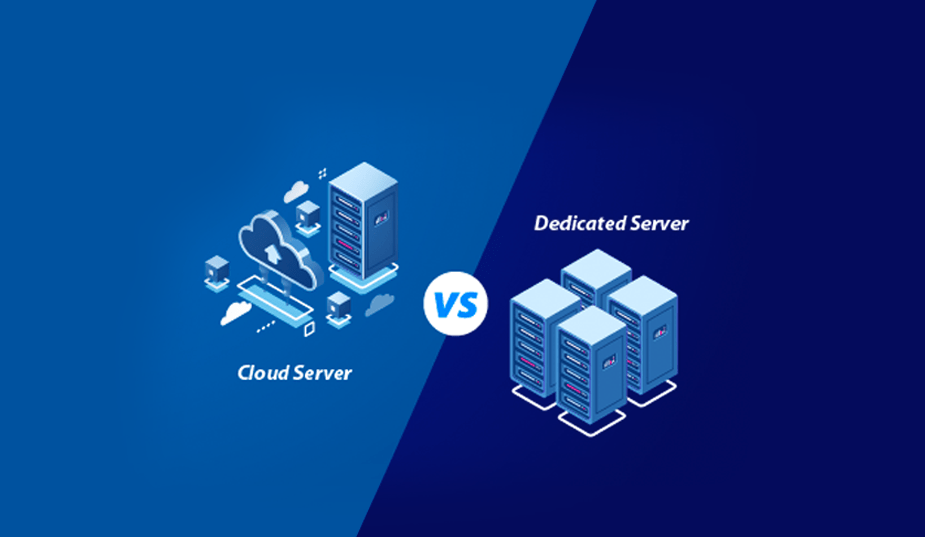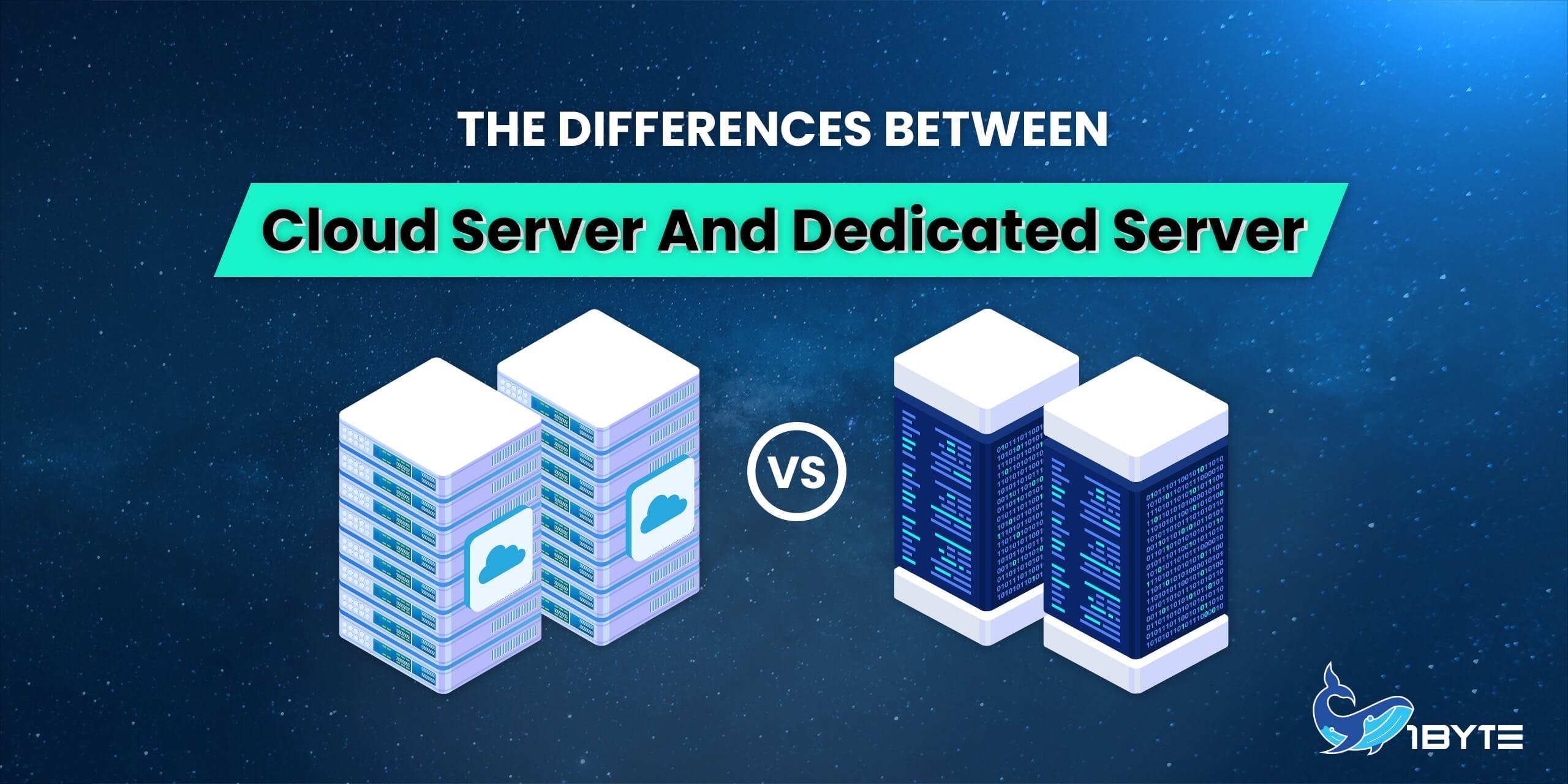Cloud servers and dedicated servers are two different types of hosting services that are commonly used by businesses and individuals to host their websites and applications. While both types of servers have their advantages and disadvantages, they are fundamentally different in terms of how they operate and the features they offer.
What Is a Cloud Server?
A cloud server is a pooled, centralized server resource that is hosted and delivered over a network—typically the Internet—and accessed on demand by multiple users. Cloud servers can perform all the same functions of a traditional physical server, delivering processing power, storage, and applications.
Cloud servers can be located anywhere in the world and deliver services remotely through a cloud computing environment. In contrast, the traditional dedicated server hardware is typically set up on premises for exclusive use by one organization.
What Is a Dedicated Server?
A dedicated server is part of a traditional server. The conventional server was often used when the concept of a cloud server was not there. In a conventional server, the customer can buy a shared or dedicated space on the server to host his or her website. In a dedicated server, the customer can buy the complete server for himself, where he or she does not need to share the server space and resources with other customers. Many big firms and enterprises use dedicated servers because they can give a high level of security. This option is not suitable for small firms because it requires experts’ knowledge and senior resources to manage and maintain a dedicated server.
The Differences Between Them

Before going into an in-depth analysis, OneByte recommends that you should read and understand the concept between Cloud Server and Dedicated Server. Once you get them all. Here is the Head-to-head comparison between the Dedicated and Cloud Servers:
| Dedicated Server | Cloud Server | |
|---|---|---|
| Cost Factor | In the dedicated server, we have to pay for a specific range. Here we require expert knowledge and high-level resources to manage our server, which is very expensive, and small firms can not afford to have a dedicated server. If you use a dedicated server for that you require a team especially to handle and manage the server. | This is the most cost-efficient service; here, you only pay for the space and resources which you are using. All the expert knowledge of server working is handled by the provider itself. You do not require any special to manage the server. |
| Management | In the dedicated server, the owner has full control over the server and can manage the server according to its need. Though for the maintenance and management of the dedicated server, we need complete knowledge of the server itself, here we have full control of the server. | The cloud server is managed; the server provides the customer with no control over the Server. Managing a cloud server is way harder than managing a Dedicated server, unlike a single dedicated server, in the cloud server, we deal with hundreds of virtual servers. |
| Reliable | In a dedicated server, we deal with a single server, so if there is some failure in the system, it can collapse the complete server and data too, which can bring down the server. | In the cloud, multiple servers hold your webpage instances, so even if a server collapses or gets down, the instance of your web page is handled by another server. These multiple servers make cloud computing more reliable. |
| Security | The main reason for using the dedicated server is security, to attack a dedicated server could be a tough call for a hacker because it’s very hard to breach the security of this server. | Cloud server also provides security, but a head-to-head comparison with the dedicated server, its loss. It does not mean that anyone can attack the cloud server, cloud servers are highly secure too but not that much as dedicated. |
| Customization | As in a dedicated server, the customer has full control over his server, so here he or she can customize the server according to the need. | Cloud does not provide that much control to its customer, so a cloud user can not customize the server. |
| Integration of Tools | In a dedicated server, if you want to integrate the server with some utility-based tools, you may have to pay more as compared to the cloud server. | Cloud provided you with multiple utilities within less cost. |
| Scalability | We cannot change the configuration in a dedicated server because we have dedicated hardware in use. | Cloud servers are highly scalable, according to your need, you can change anything such as resources and space. |
Conclusion
Both cloud and dedicated servers have their features. If your business is small or medium, you should choose a cloud server to host your website or web app. Cloud provides you with high scalability, flexibility, and security. Unlike a dedicated server in the cloud, you do not have to pay extra. Even big firms are moving their online business to cloud computing, because of its extraordinary features.

